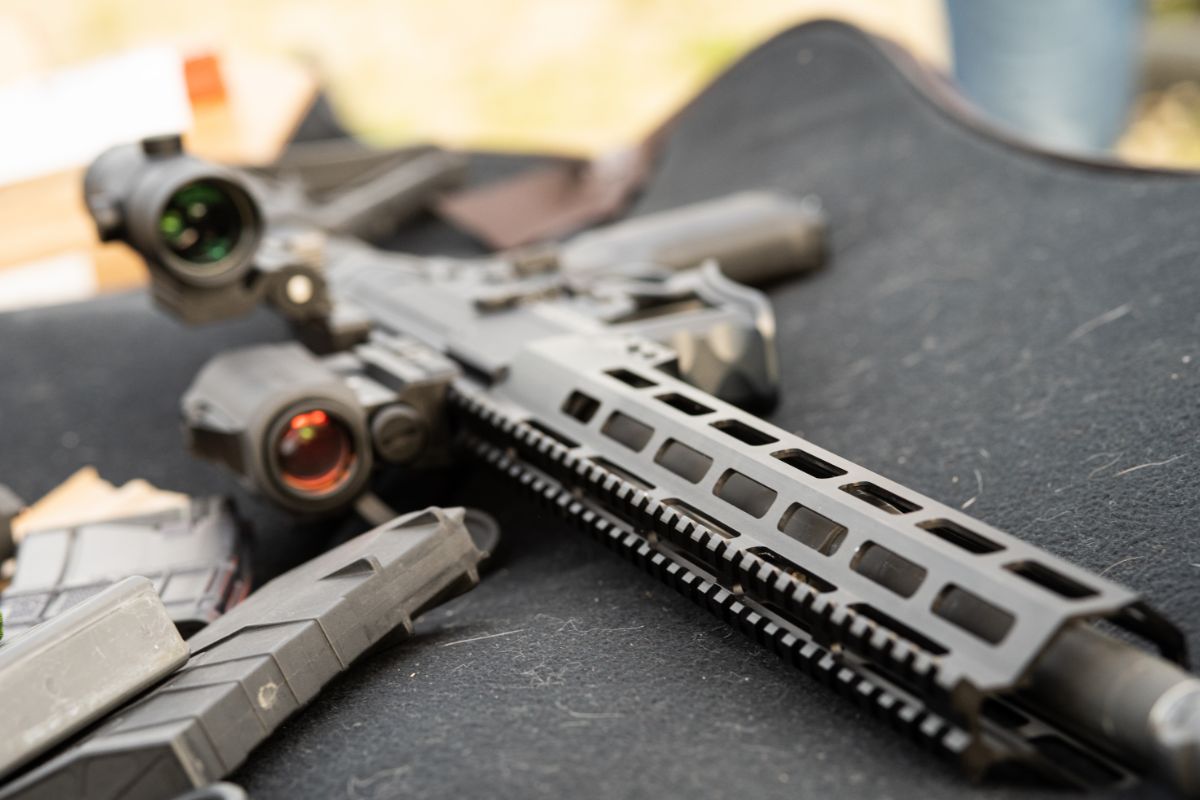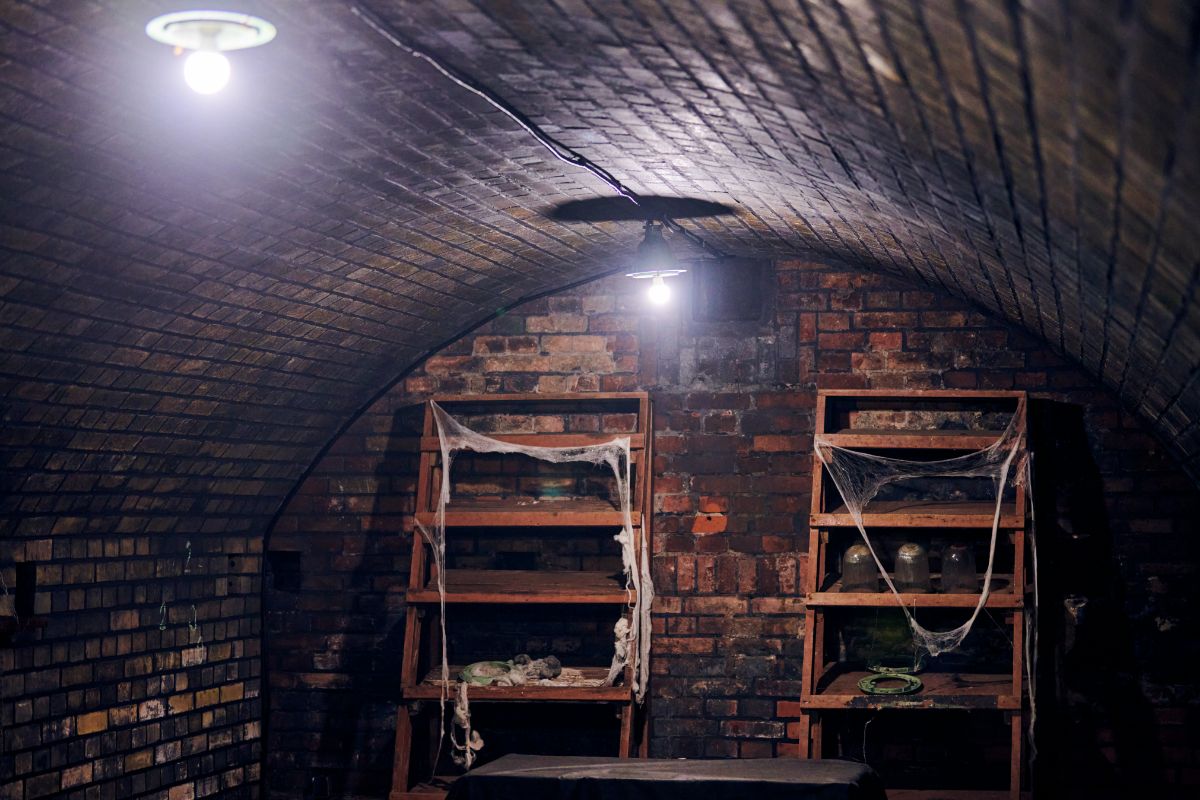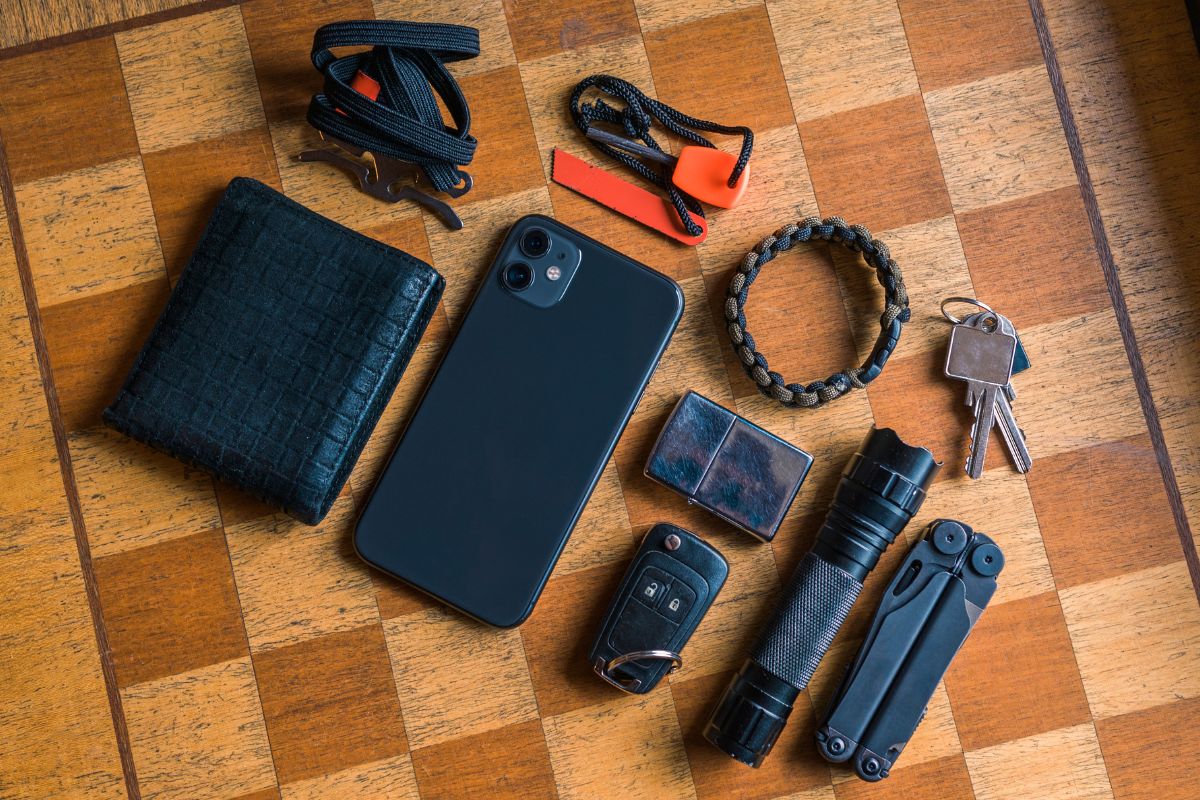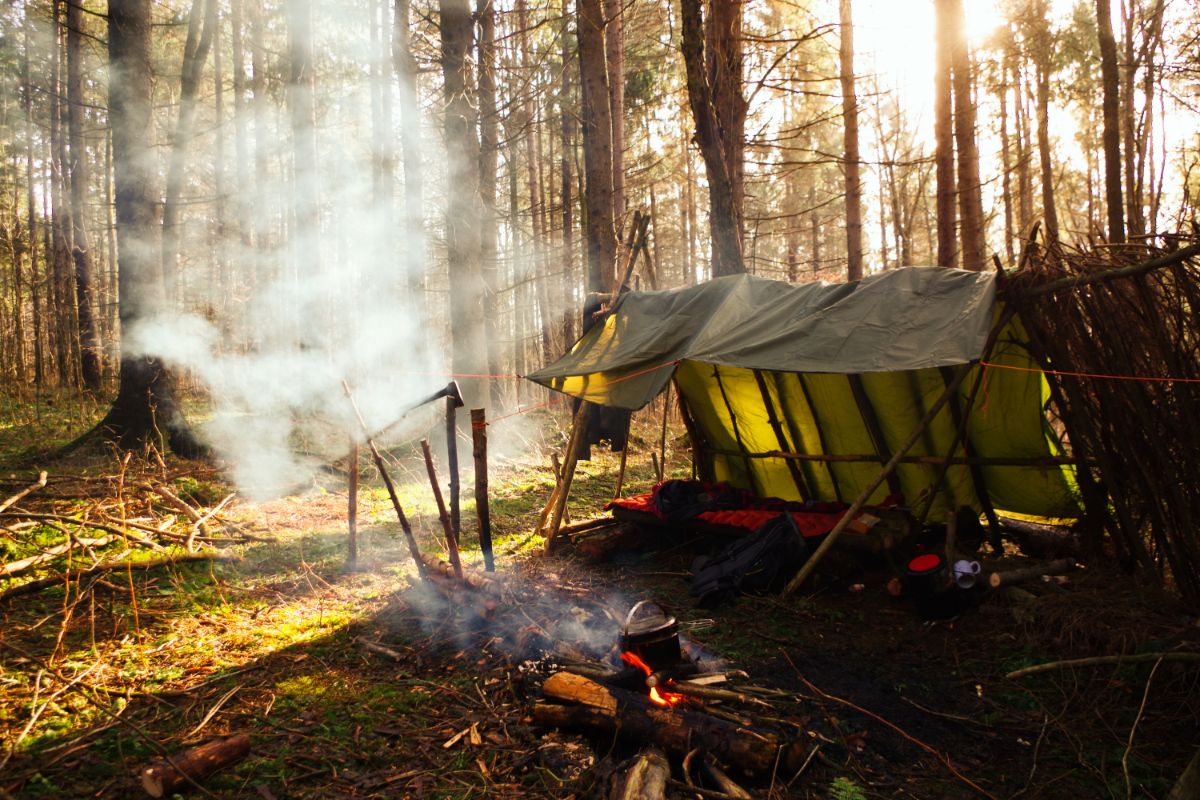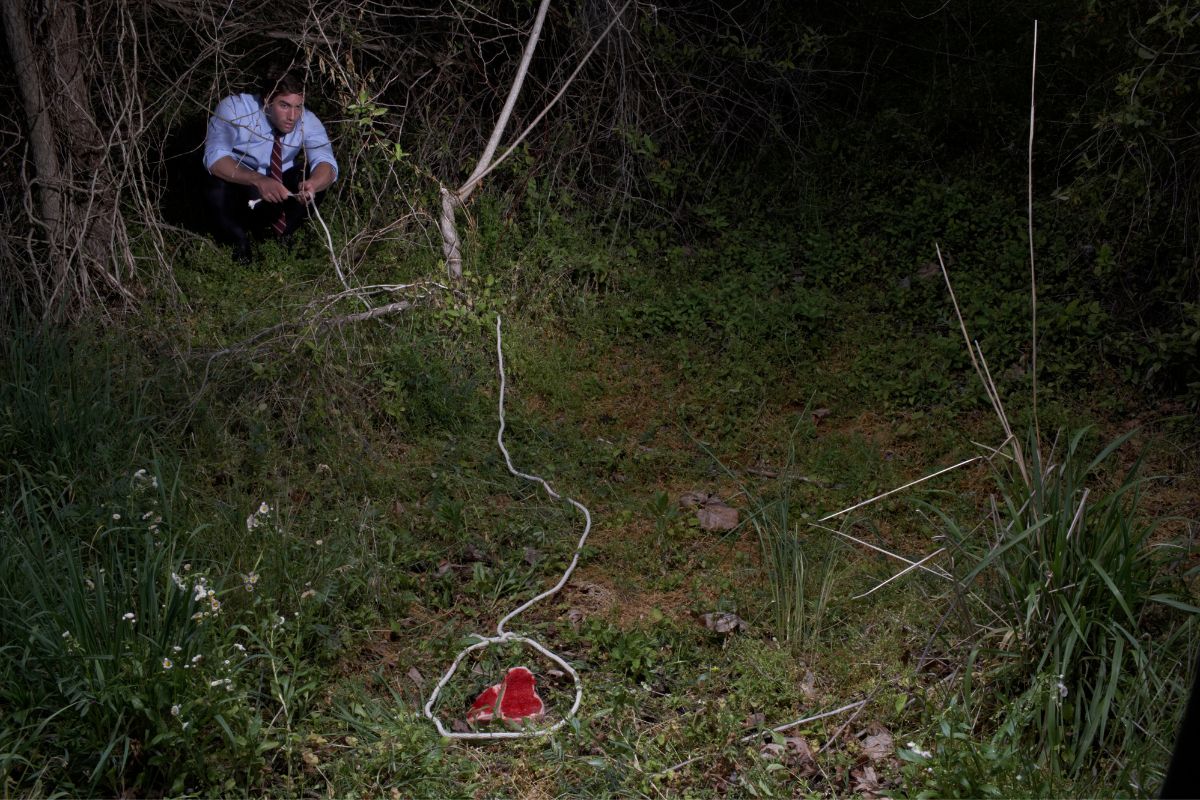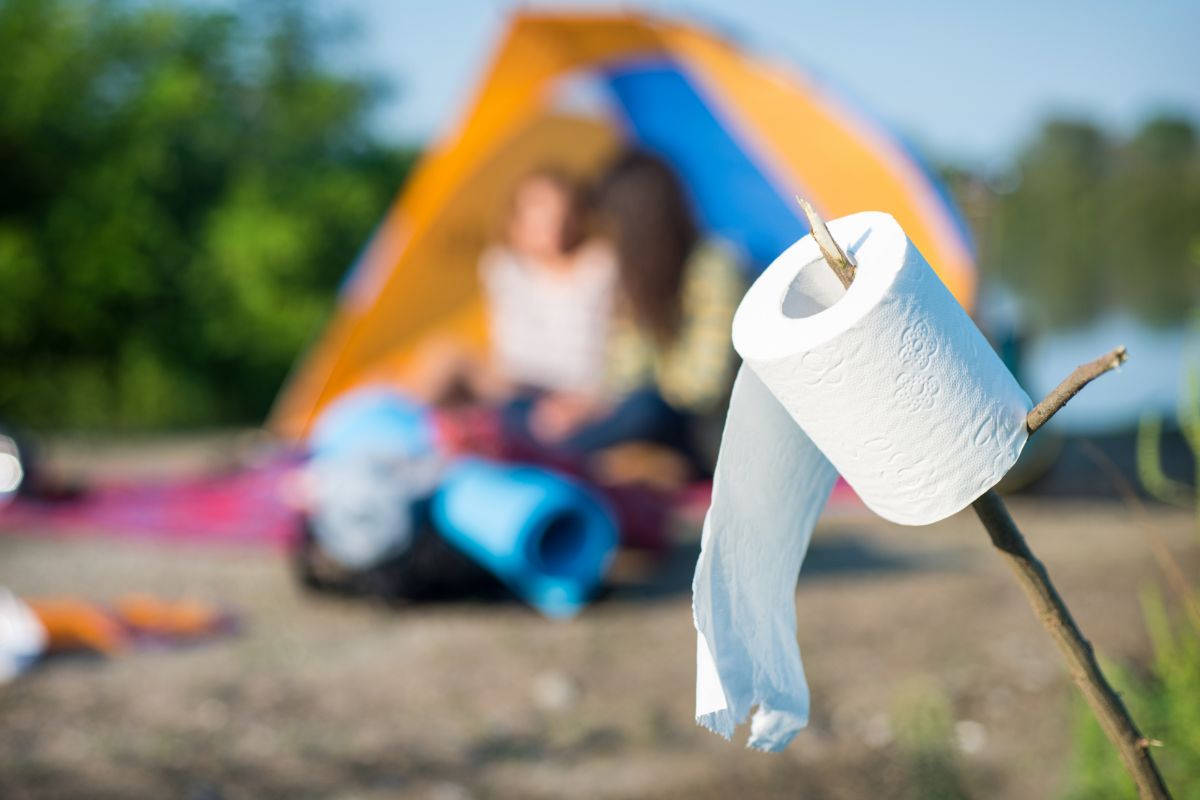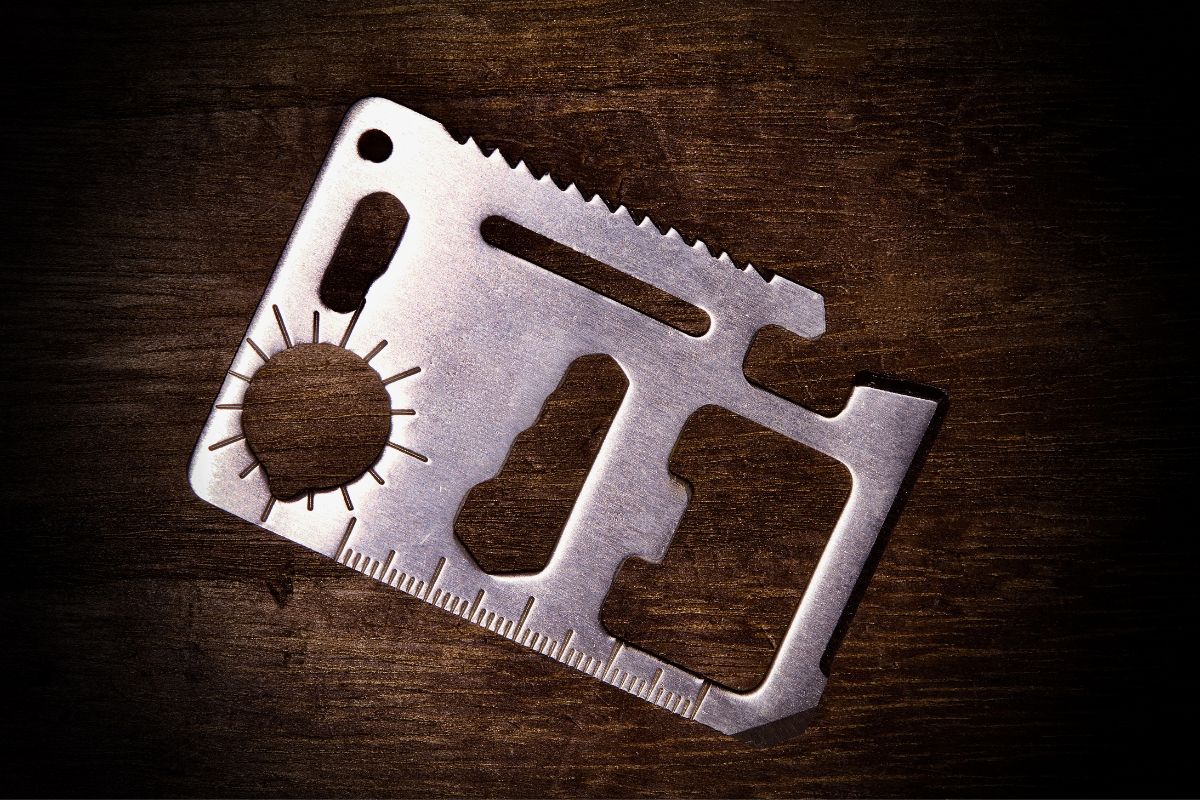Whether it be a survival knife used in the great outdoors, or a knife used at home to prepare wild game, you have to keep it super clean and sanitized.
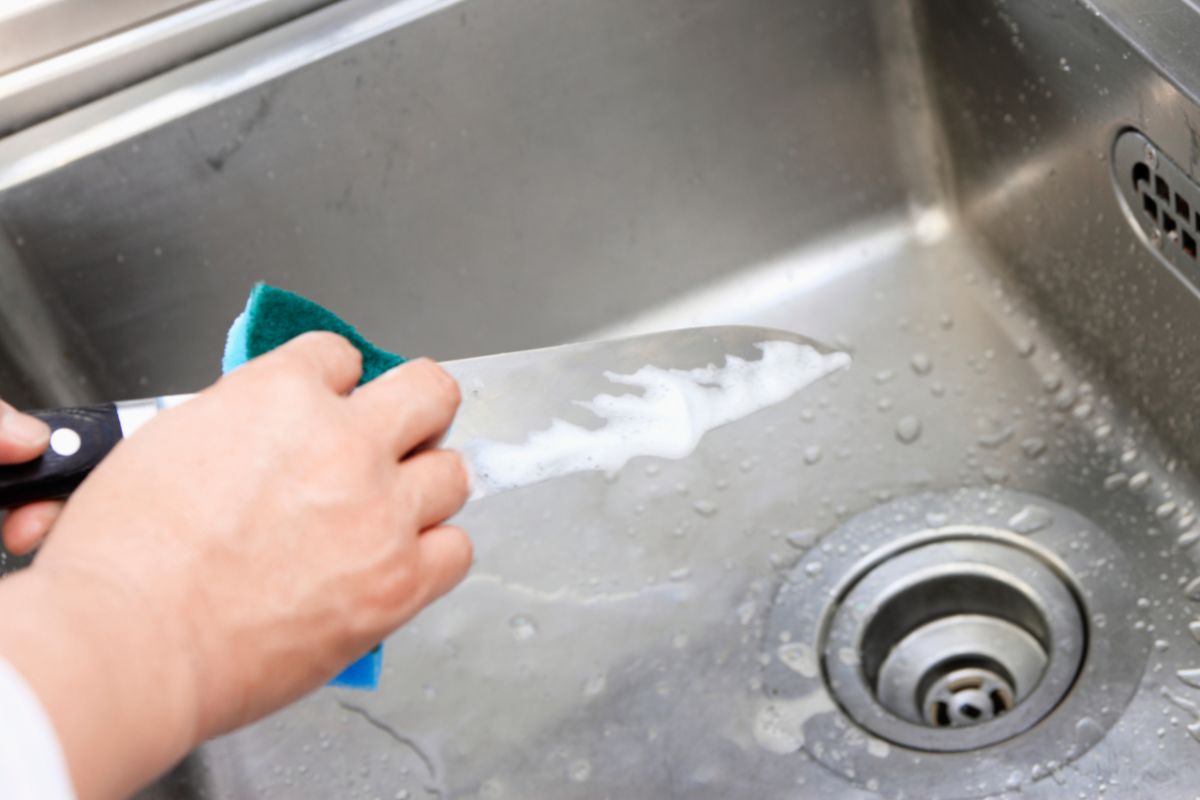
It doesn’t matter if you’re cutting fish, steak, or vegetables, your knife has to be kept clean and sanitized.
The human hands and food are packed with viruses and bacteria that can be very easily spread by your knife.
The last thing you or your family want is to fall ill after dinner. Even worse, you don’t want to poison your BBQ guests.
With that in mind, you need to know when to clean and sanitize your knife. The fact you’ve landed here would suggest you’re unsure.
Don’t worry though, we’re here to help!
In this post, you’ll find 5 occasions when your knife should be cleaned and sanitized. We’ll even give you some cleaning tips!
1. When Using The Same Knife To Cut Different Foods
We’ll start off with one of the most important times you need to clean and sanitize your knife.
Most of the time, when we prepare food for grilling, we’ll use one knife to cut most of the food.
You might first cut the chicken, then the potatoes, and then your fish.
Despite being extremely common, doing this using one knife can be potentially dangerous.
Using a knife like this easily creates a cross-contamination situation across the foods.
This can result in food poisoning.
If you plan on only using one knife, you have to clean it and sanitize it before using it to cut the next food item.
Even if the knife is only used for one specific task, for example, scaling a fish, you still need to clean it straight after you’ve used it.
When left, a dirty knife can still contaminate cutting boards and other utensils.
2. When More Than One Person Uses The Same Knife
You should also clean and sanitize your knife when more than one person plans on using it.
Admittedly, this one seems a little excessive but it is still important, especially if you want to limit the spread of bacteria.
In fact, multiple people using the same knife when prepping food is one of the fastest ways viruses and bacteria can be spread.
Increased hand-to-hand contact only heightens the chances of bacteria spreading when more and more people use the knife.
It might be annoying and time-consuming, but you should clean your knife every time someone new wants to handle it.
Everyone that wants to use the knife should also wash their hands first. If anyone touches the blade, the knife should be cleaned again immediately.
3. When You First Buy The Knife
The next time you should clean and sanitize your knife is something you probably already do.
However, it’s also one that’s very easy to forget.
One of the biggest mistakes people make when using a new knife for the first time is forgetting to clean it.
While this may not seem like a big deal because the knife is new, there’s a very high chance multiple people have touched it.
Even the packaging can cause problems.
This increases the chances of the knife already playing host to bacteria and microorganisms.
As a result, the knife should be cleaned and sanitized first. Bacteria and viruses could sit on the handle or blade so make sure you clean both thoroughly.
Only after you’ve cleaned, sanitized, and dried the knife can you start to use it to prepare food.
4. Right After Sharpening The Knife
Knives used to prepare food for grilling have to be sharp.
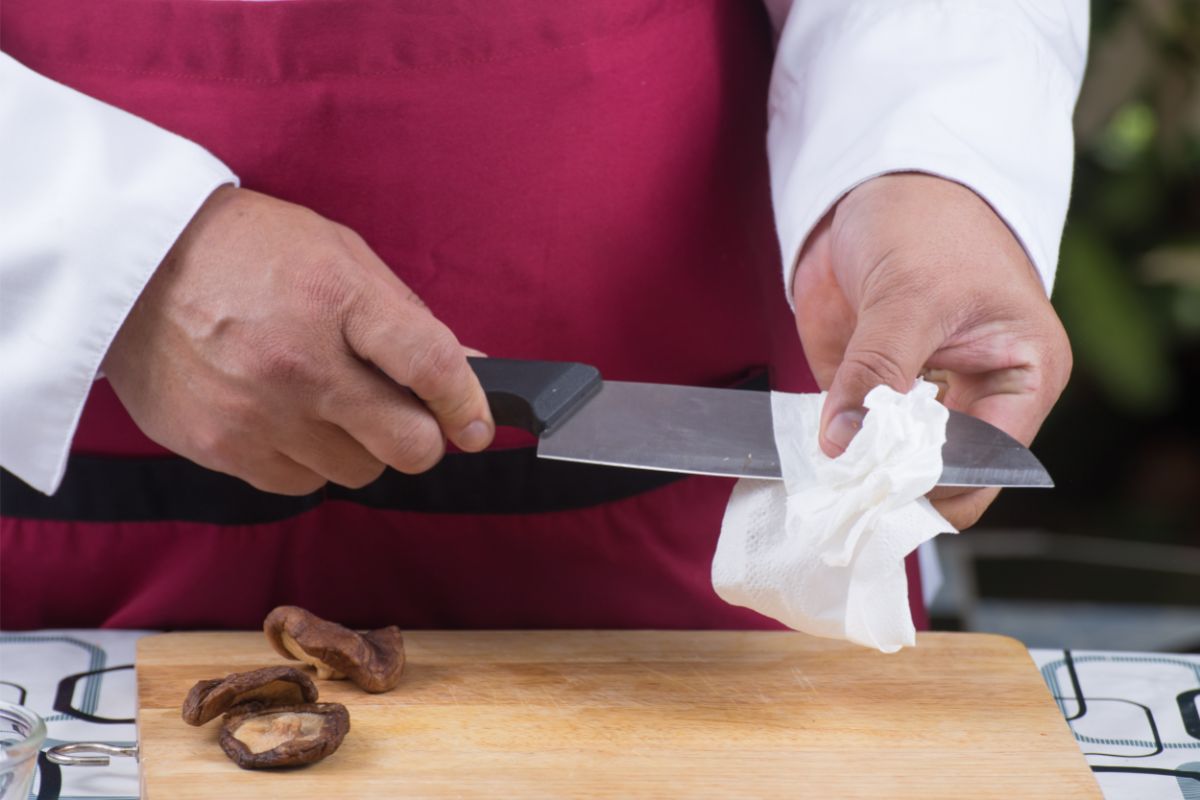
A good sharp knife makes it much easier to cut through food more precisely.
Chopping and slicing becomes almost effortless. However, to keep a knife nice and sharp it will require regular sharpening.
This massively helps to increase the knife’s lifespan.
If you use knives regularly, you’ve probably already sharpened your knives multiple times.
Once you’ve sharpened your knife, it’s important that you also clean and sanitize it.
When you sharpen a knife, small pieces of dust, metal, and something called swarf end up covering the blade. These tiny pieces of debris can contaminate food.
Therefore, make sure you thoroughly clean and sanitize your knife before you start cutting again.
Sanitizing the blade will help eliminate any bacteria too.
5. After Cutting Yourself
Finally, if you cut yourself when using a knife, you have to clean and sanitize it.
Of course, your first port of call is to seek first aid (Also check out What Is An IFAK?) or medical attention. Only then should you start to disinfect the knife.
Aside from cleaning and sanitizing the knife, you should also clean any surfaces that blood has fallen on.
This is important because those who come into contact or consume blood could be at risk of contracting a bloodborne disease like hepatitis or HIV.
For added safety, you might even decide to sterilize your equipment afterward.
Knife Cleaning And Sanitizing Tips
Now you know more about when a knife should be cleaned and sanitized, let us finish off by giving you some useful tips that will help you clean your knives safely and effectively.
If you follow these tips, you’ll have no problems.
- Use dish soap and hot water to wash your knife after each use.
- Don’t use abrasive scourers. Instead, use a sponge to remove any debris.
- Keep the knife’s blade pointed away from you.
- Rinse your knife with clean hot water.
- Use paper towels to pat dry your knife. Alternatively, let your knife air-dry.
- Never put a high-quality blade in a dishwasher.
- If your knife has a wooden handle, it isn’t dishwasher safe. The wood will rot and swell.
Final Thoughts
Cleaning and sanitizing a knife thoroughly isn’t something most people think of that often.
However, it is something that simply has to be done, and frequently.
A knife shouldn’t only be washed after use, there is a wide range of other times it will also need cleaning.
In this post, we’ve shown you 5 of those times and why it is important to do so.
Some of the times you need to clean your knife are quite obvious, whilst others are more obscure, seeming almost over the top.
With our list at your fingertips and the top tips we finished off with, you should now know a lot more about when and how to clean and sanitize your knife. Make sure you use this information to your advantage.
- How To Make A Quick And Easy DIY Toilet For Camping - September 19, 2022
- How To Use A Knife For Self Defense - September 19, 2022
- How To Help The Elderly Recover From A Disaster - September 19, 2022

